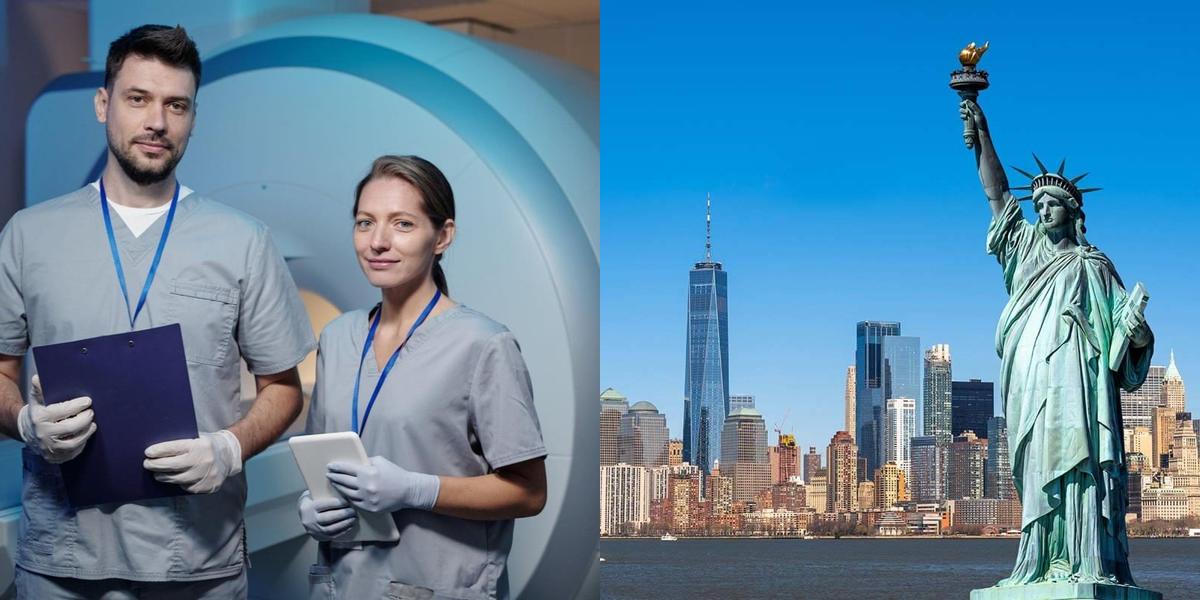How to Become a Radiology Technician in New York

What is a Radiology Technician?
Radiology technicians, also known as radiologic technologists, are healthcare professionals who use imaging technologies, such as X-rays, computed tomography (CT) scans, and magnetic resonance imaging (MRI), to assist physicians in diagnosing and treating various medical conditions. They are responsible for properly positioning patients, operating the imaging equipment, and ensuring the quality of the images obtained.
Article continues after recommendations
Recommended for you
Where Does a Radiology Technician Work?
Radiology technicians typically work in hospitals, clinics, diagnostic imaging centers, and physicians' offices. They may also be employed by the government, research facilities, or educational institutions.
How to Become a Radiology Technician in New York?
To become a Radiology Technician in New York, one must first complete an accredited radiography program, which typically takes two years. Next, they must obtain certification by passing the American Registry of Radiologic Technologists (ARRT) exam. Once certified, they can search for job opportunities in hospitals, clinics, or private practices, earning a competitive salary commensurate with their skills and experience.
What are the Requirements to Become a Radiology Technician in New York?
To become a radiology technician in New York, you must meet the following requirements:
- Education: Complete an accredited radiologic technology program, which typically takes 2-3 years to complete and results in an associate's degree or a certificate.
- Licensing: Obtain a license from the New York State Department of Health, which requires passing the American Registry of Radiologic Technologists (ARRT) examination.
Exploring a Career in Radiology Technician Outside New York
If you've been reading this article and long to become a Radiology Technician, but you live in a different state, don't lose hope – achieving your goal is still within reach. You might consider exploring opportunities to become a Radiology Technician in Delaware, Georgia, New Jersey, Rhode Island, or Wisconsin. If none of these locations work for you, Dreambound makes it easier than ever to pursue your dreams regardless of your location by simplifying the process of finding and comparing Radiology Technician classes through a convenient search by zip code. With determination and access to the right resources, you can confidently pursue a successful career in healthcare, no matter where you live.
How Do I Get My Radiology Technician Certification?
To get your radiology technician certification in New York, you must:
- Graduate from an accredited radiologic technology program.
- Pass the ARRT examination.
- Apply for a license from the New York State Department of Health.
Get courses selected just for you
Try our powerful search engine
How Do I Get a Job as a Radiology Technician?
To get a job as a radiology technician in New York, you can:
- Network with professionals in the field and search for job postings on job boards and the websites of healthcare facilities.
- Prepare a strong resume highlighting your education, certification, and any relevant experience.
- Participate in job fairs and interviews, showcasing your skills and knowledge.
Career Paths and Opportunities after Becoming a Radiology Technician
After becoming a radiology technician, you can explore various career paths, such as:
- Specializing in a particular imaging modality, such as CT, MRI, or mammography.
- Advancing to a supervisory or management role, overseeing the operations of an imaging department.
- Pursuing further education to become a radiologist assistant or a radiation therapist.
- Teaching at a radiologic technology program or working in research.
Final Thoughts
Becoming a radiology technician in New York can be a rewarding career path, allowing you to play a crucial role in the healthcare system. By meeting the educational and licensing requirements, you can embark on a fulfilling career with numerous opportunities for growth and advancement.
If this article doesn't match what you're looking for, you can check out these other articles:

Athena is Co-founder and CEO of Dreambound.




